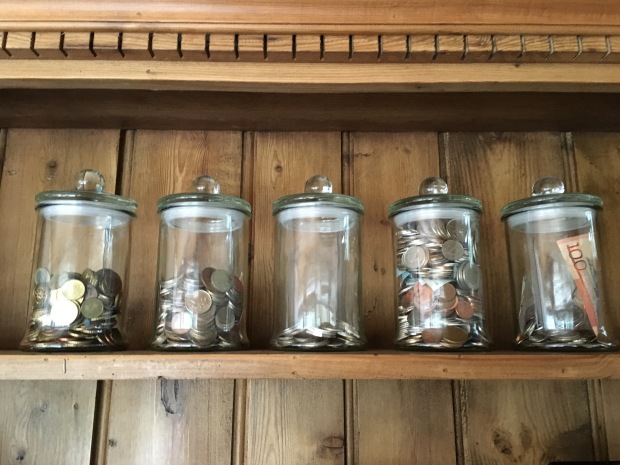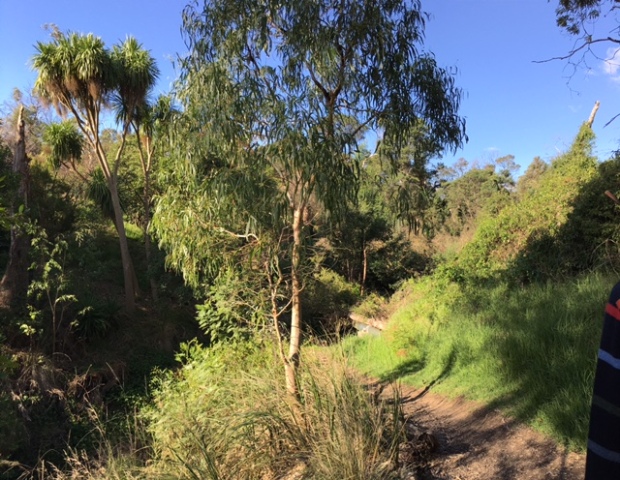I was reading some blogs and resources related to global migration. I was surprised to find so many different terms associated with being a ‘person living outside one’s home country’. It made me think about which term I would use to explain my/our migration. Here are some definitions:
- Migrant: a person who moves from one place to another in order to find work or better living conditions. (https://www.google.com.au/search?client=safari&rls=en&q=migrant+definition&ie=UTF-8&oe=UTF-8&gfe_rd=cr&ei=XmsxV_npIKLM8geq2plI)
- Expat: a person who is voluntarily absent from their home or country (http://www.thefreedictionary.com/expat)
- Third Culture Kid (TCK): ‘…a person who has spent a significant part of his or her developmental years outside the parents’ culture, building relationships to all of the cultures, while not having full ownership in any’. Although elements from each culture may be assimilated into the TCK’s life experience, the sense of belonging is in relationship to others of similar background (Pollock & Van Reken, 2001)
- Cross Culture Kid (CCK): ‘is a person who is living or has lived in, or meaningfully interacted with, two or more cultural environments for a significant period of time during childhood (up to the age of 18)’. (Pollock & Van Reken, 2001)
Am I a migrant? Not necessarily, although, initially, when I left Quebec/Canada, I felt there were more employment opportunities in the UK. I certainly did not migrate for better living conditions. Surprisingly, Scotland was ‘very’ cold, dark and windy in the Winter, and humid, cloudy and light at night in the Summer. I wore shorts once in 5 years of living there. Tesco ran out of BBQ at the first ray of sunshine! Definitely not a migrant!
In regards to TCK and CCK, I grew up in a very rural area of Quebec, all my childhood, definitely not a child who has lived in different cultures…I would perhaps consider my children as CCK, but certainly not me.
I never really considered myself as an expat. Yes, I voluntarily left my home or country for a trip abroad, but I never intended to ‘leave’ my country as such. Life just happened. I have always had a very strong sense of identity and respect for my home culture with the desire to pass it on as much as I can, with its challenges. I try to go back for holidays as much as possible to catch up with family and friends, soak up all my culture again and ensure that my children experience that culture too. I have established a number of rituals and traditions in our family that are from my home culture. My oldest has become a real connaisseur of ‘poutines’ and keeps talking about how he could invent new recipes!
I married someone from a different cultural heritage and have embraced some of that culture too. My culture alone is no longer part of my existence, there is a lot more to it and many layers to it… Many traditions, rituals, routines we have adopted as a family have reasons to exist in our family and have been carefully chosen or thought of.
We now live in a different country to which neither of us come from. I lived 18 years in the UK, does that make me an UK expat, a culture which was not my own to begin with anyway?
The word expat has an interesting connotation to it…it sounds like as in ‘patriotic’…It is also often referred to as ‘a group of people from one culture living close by’. I have always felt uncomfortable with that word for many reasons:
- I have never met a person from Quebec in my travels and experiences. Never been able to share being an expat with people from my own culture. In fact, I know a handful a people from Quebec who live or have lived abroad.
- I am able to evaluate customs, traditions and attitudes that I like about my home country, but I am also able to contrast with other cultures some specific aspect of my own culture that I don’t necessarily embrace. Although I am particularly fond of my home culture and my origins, I am not patriotic at all costs.
- I also don’t like the ‘ex’ in expat as if I am an ‘ex’ to that culture. The ‘ex’ part makes an assumption that it is over, finished. I personally don’t feel like an ‘ex’ at all. I still live and embrace that culture every day, in my own way, yes perhaps not on that specific piece of territory/land, but I am still sharing and living it, it’s part of me.
Where does that leave me? Who am I?
In all the forms I have to complete, I am a ‘white other’. Does that describe me well? Not sure it is particularly helpful. I have always found the word ‘other’ as not particularly respectful of one’s culture…’just that other one’, ‘feeling left out on the side’, and not well identified. For the school Census in England, every year I had to complete forms for the children’s schools. Every year, I added ‘French’, next to the ‘English’ ‘language spoken at home box’. Every year, it came back with ‘English’ as the only language spoken at home. Our identity at home was somewhat not fully respected there either.
Your passport, your identity?
On my passport, it says that I am Canadian, which brings some other implications with my identity. When I arrived in the UK, for the first time, the immigration officer was very puzzled as to the reasons why I was not able to understand him at all. I had to explain that I spoke French and not English. Many would assume that travelling with a Canadian passport means that you speak English. This immigration officer was shocked!
I am entitled to a British passport. Yes, I understand that culture, I lived there, I have many friends and family there. Although I lived there for 18 years, I don’t feel necessarily British as I speak in a second language to the primary language of that country and grew up with different rituals and culture and still embrace these.
Identity through Language?
Many people will hear you speak, say ‘Hello’, look again, look again, and you can see people thinking…’she is not from here’. And then you carry on, do what you have to do, and there seems to be this silence, this puzzling face, ‘where is she from?’ Sometimes people ask, sometimes people carry on, on many occasions people question further which then leads to THE conversation…’Where are you from?’ Over time, I started to say, ‘have a think, what do you think, have a guess!’ Nobody ever ever guessed…’French? (the name gives it away a bit)’, Irish?, the main one has been ‘Scandinavian?’, perhaps more for appearance than anything else, or perhaps because our accent becomes similar, northern countries, somehow, not sure…After a long time being in one place, where people tune in to your accent, become accustomed and know you well, in Australia, people have turned heads again, and then I just say ‘I have just moved from the UK’…’ahh ya I can hear it’ and then I say ‘I am Canadian, French speaking’…more puzzled, they then ask: ‘Can you spell your name for me?’
Can language identify your nationality? Well, I am writing a blog, in my second language, with many oddities I am sure! Yes I chose to write in English for many reasons. It is very far from my home culture, in fact, many people from my home culture may judge me for it…I go back to my home country and it takes me a couple of days to tune in to my home language, without looking for a translation for the odd words or sentence. I speak in French, people from my home country think I have an English accent, I speak English, I have an accent as I am not native and speak and write with some grammatical oddities (only a few!) that only the native will learn.
My children, who I try hard to pass on my language and cultural heritage to, speak with a British accent when they speak French. Does that make them less Canadian or Québécois? No, they are Canadian citizens in their own rights!
Who do I feel I am?
Interestingly, no form, no Census, will ask me that, rarely anybody has asked me that question. There was a recent video posted on a social media site ‘Don’t ask me where I am from, ask me if I’m local’ from Taiye Selasi, a very inspiring and powerful message. I related to this post and thought to myself: ‘I have been local there, there, and there…I can name these towns, give an address, talk about people I met there, the great local markets and shops, the charity organisations and schools, the landscape sceneries, to name a few…and so what, who do I feel I am? If I say, I am local, will people ask me about my journey, do locals ask people about their (international) stories? Will I then be expected to be similar to the locals?…Talking about my journey, is that important? Why should it be important? It describes who I am today, battles, languages, journeys, knowledge about specific areas, connections and relationships with people, trips, dreams, talents, ideas, I lived and come across…and what if I wanted to tell my story…not the one the form or the Census prescribes, not the one prescribed by a country, a history, a geography, and local map boundaries.
I ask…what about we asked each other, as narrative therapists would say (White & Epston, 1990), ‘what is your story?’
If I had to really choose a term, being global citizens seem to gel more easily with me. I embrace different cultures in my daily life. I share and talk about different cultures with my children and my husband. We are able to contrast and compare experiences lived in Canada, England, Scotland, and now Australia, as well as in Europe as we travelled there too. My husband also comes back with stories from his travels abroad from lots of different countries. In our travels and experiences, we have met people from all over the world. We share and discuss rituals and cultures with them too.
The term, global citizen, implies a notion of positivity, a sense of responsibilities, duties, and that you live in a world that refers to a globe, embraces a certain unity, aims to seek unity, a world of togetherness. It certainly has some interesting and deep meanings, perhaps much closer to how I feel we live our cross-cultural experiences, our daily experiences.
Pollock, D.C. & Van Reken, R. E. (2001): Third Culture Kids. Nicholas Brealey Publishing: London.
Taiye Selasi
White, M. & Epston, D. (1990). Narrative means to therapeutic ends. New York: WW Norton. ISBN 978-0393700985




